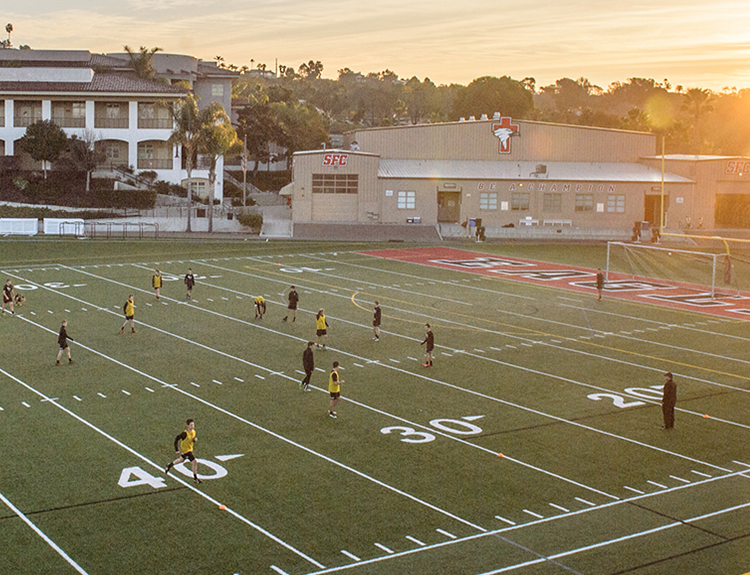The pursuit of perfection battles mightily against the pursuit of excellence. Though often used synonymously in our Christian culture, the words excellence and perfection actually stand against each other. Using these two words interchangeably can confuse those younger ones around us, as they may incorrectly conclude that only perfection will satisfy us.
I discussed the difference between excellence and perfection at the Middle School and Upper School chapel last week using our amazing volleyball team as an illustration — when our volleyball team wins a point, they quickly gather in a tight circle on the court, smile at one another, lean in, and then cheer for each other. At other times, when they lose a point what do they do? The same thing! They gather quickly, smile at one another, lean in, and give a quick cheer. They simply reset themselves. This group of athletes is a perfect example of what it looks like to pursue excellence without being overwhelmed by the pursuit of perfection. It’s easy to illustrate this distinction with a volleyball match metaphor, but how do we recognize when our children are losing the battle between perfection and excellence?
Does your child exhibit anguish when he tells you about a mistake he made or a less-than-ideal grade? Perhaps you have a child who struggles with the unhealthy pursuit of perfection and is defined by very high grades. I once knew of a student (with one of the highest GPA’s in his class) who was at the point of withdrawing from high school because of the impending threat of his first “B” on a report card. Can you imagine feeling such extreme bondage to perfectionism? Even more discouraging is the child that realizes perfection is unattainable, gives up, and becomes apathetic towards this (perceived) unrealistic standard of perfection, ultimately resulting in feelings of resentment and rebellion.
If perfection is your only goal, your child will never feel comfortable to lean on you for support when they inevitably fall short.
Failure, simply put, is a result of risk-taking. As the mentoring parent, you want to open up a conversation with your child about what their perceived standard of perfection really is, and why they feel they aren’t measuring up. More than that, you want them to be able to come to you freely and say, “Here is where I did not perform excellently, and I feel supported when I share that with you.”
The best way to model the pursuit of excellence for your children is to be vulnerable and open with them about your own shortcomings and struggles. Adults freed from the pursuit of false perfection give the younger ones the freedom to enjoy the pursuit of excellence themselves. If you need a real example, go check out an Eagles varsity volleyball game.




